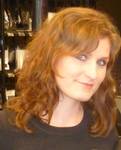
Aus der REIHE MIGRATIONSGESCHICHTEN von Birgit Stegbauer (mehr InterviewpartnerInnen)
Edisa Redzic, 26: the family of the Austrian woman born in Bosnia-Herzegovina fled from the ethnic cleansing of the Bosnian war in 1992. The Slavicist suffered her own culture shock at a typical Austrian wedding – she chose a wedding tradition in Bosnia-Herzegovina as the subject of her master’s thesis.
I was born in Prijedor, a town in northwest Bosnia. My Dad was already working as an immigrant worker in Austria, while my Mum lived with us children in Yugoslavia. In April 1992 my father came to visit us because it was a Muslim holiday, Bajram*. And when he wanted to go back to Austria, he couldn’t get out of Bosnia again, the Chetniks had put up / built barricades at all the border crossings. This was a sign that war was coming. So we set off: 3 adults and 4 children in a little Stojadin, a small Yugloslav car.
I still remember a bridge my Dad drove over really slowly, slaloming past the mines. And then how we once turned back because there was fighting in our direction. But most of all at a Chetnik checkpoint, though thank God there were regular soldiers from the JNA (Yugoslav People’s Army) with them. If they hadn’t been there, who knows what would have happened. Lots of my male relatives were arrested with no reason given and went to a camp, not all of them survived.
After a stop in Slovenia we drove into Styria, where my Dad had work and a room. After 2 – 3 months he got a new job in Münichtal, near Eisenerz-Leoben. Because my Dad had already been living as an immigrant worker in Austria before we came, we didn’t register as refugees. My Dad thought, there were others who needed refugee aid more than us.
But the landlady of our apartment, a woman who was originally from Montenegro registered us as refugees I think. She carted us off to church so that Caritas could see we were there and she got money that she kept for us. When my parents received it they looked for another apartment straight away.
In Münichtal my brother and I started school. Later we moved to St Paul in Lavanttal, I went to secondary school there and from there I went to Klagenfurt. First to BORG where I did my ‘A’ levels, then to university where I did Slavic studies.
Apart from two friends I study with, I only have Austrian girlfriends. There are tiny differences which help us to understand each other. As a child you don’t notice differences, it starts in adolescence: I mustn’t do this, I mustn’t do that and no arguing with parents. We don’t do that. What parents say is law.
I had my only real culture shock a few years ago: I was a guest at the wedding of a schoolfriend, there was a question-asking game on different subjects, one of them sex! In front of the parents! For us this subject is really frowned upon, with friends yes, but not with parents! Or that the groom drank from the bride’s shoe! It was all new to me, I thought: Wow, fancy doing that!
Otherwise people have absolutely no idea that I’m from somewhere else. Except when I say my name. My religious affiliation too, no one notices it’s Islam. All the traditions of a religion are determined by its culture, so Muslim Bosnians and Herzegovinians have a completely different history to people from arab countries.
My Dad can’t speak very good German at all. Even today I have to translate things for him or go with him to the doctor’s. My Mum copes much better. What amazes me about her is that she went to language classes in the primary school with us and encouraged other women too, although they didn’t stay. They laughed at my Mum, but were then happy when she could help them. But it’s often like that, that you take on a parent’s role and probably grow up quicker than other children of the same age.
Compared to Bosnia-Herzegovina it’s so clean here. Austrians poke their noses into other people’s business a lot less and make appointments in advance which I think is really good. Also the countryside. And the health care. And that the country isn’t nearly as corrupt.
But Austrians are very self-absorbed, they need to be a bit more open regarding the subject of immigration and living together. The few who are interested stay informed and help too. Only those who are interested come to events. But I don’t know how you can change that. The only way is through education, working with children, you can achieve a lot that way I think.
In 2004 my whole family applied for Austrian nationality and were successful. Initially it was for economic reasons, you have more rights, you can travel more easily than with a Bosnian passport. There isn’t any double nationality, unfortunately. We had to give up Bosnian nationality. It was a strange feeling, swearing the oath, because I’ve left behind a part of me that belonged to me, my roots. But then again . . . it’s only a piece of paper. It doesn’t mean anything.
05.04.2013
*Note:
“Bajram” is a Turkish word for “celebration” and can describe religious celebrations, for example the Islamic Festival of Eid, as well as secular celebrations, such as the Iranian new year or spring celebration Nouruz. Here the term refers to the fast breaking celebration at the end of the fasting month of Ramadan.
